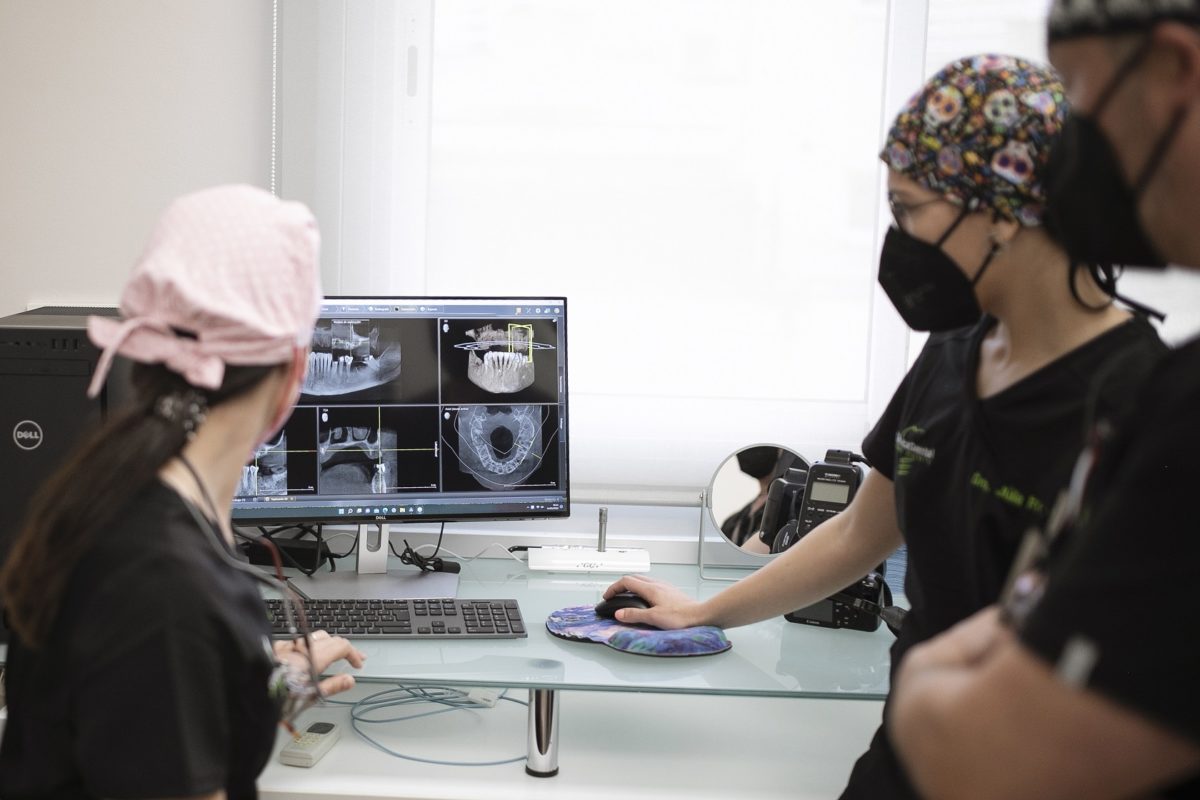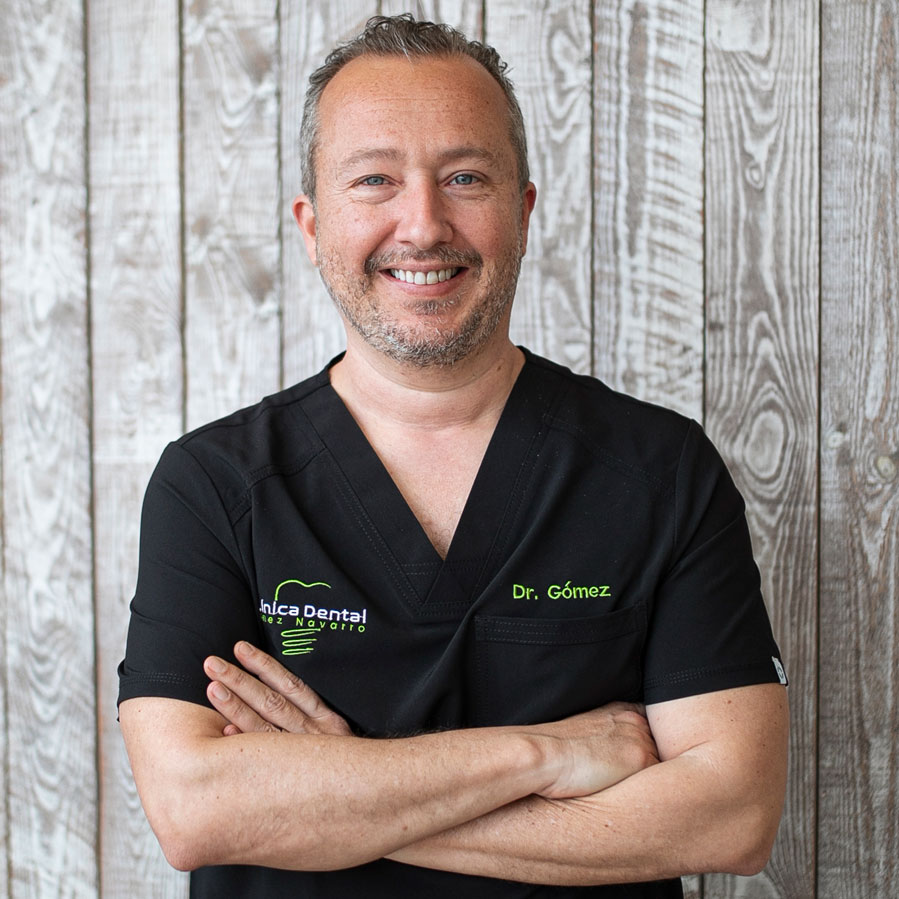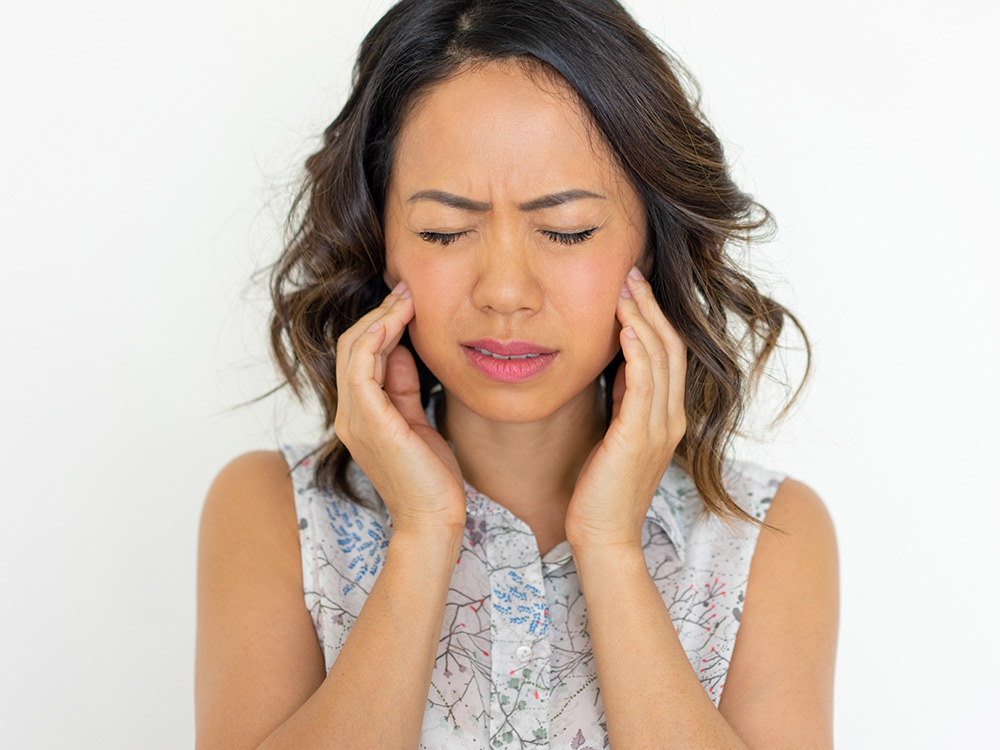This website uses cookies so that we can provide you with the best user experience possible. Cookie information is stored in your browser and performs functions such as recognising you when you return to our website and helping our team to understand which sections of the website you find most interesting and useful.
TMJ AND DENTAL OCCLUSION
The acronym TMJ stands for Temporomandibular Joint. This double joint is what ensures correct functionality and movement of the jaw. Our specialized diagnosis, study and treatment of problems related to this joint and the occlusion (bite) are carried out by 3D x-rays and a detailed oral examination.
The pathologies of TMJ are mainly differentiated into two groups.
(i) Joint problems
(ii) Muscle problems
However, and in special cases, a combination of both issues can be particularly uncomfortable for the patient.
Among the main problems that arise, the issue with the highest rate in the population is Bruxism. Bruxism is a term used for patients who grind or clench their teeth, normally during sleep. This happens unconsciously and can evolve over time. Among the common symptoms associated with bruxism, the patient may notice:
- Grinding of the teeth.
- Acute pain that affects the TMJ or the muscles used for chewing, radiating discomfort to the ears, head, face or neck.
- Clicking in the jaw when opening or closing the mouth (or both).
- Limitation of the opening of the mouth.
The cause of these pathologies is diverse. It is understood that they are mainly due to stress, tension or an incorrect position of the teeth.
Dr Juan Francisco Gomez is our specialist and Director of the clinic. He has extensive studies and solutions for TMJ issues. In some cases, TMJ disorders go away on their own. On the other hand, if your symptoms persist, TMJ exercises may help bring pain relief. However, TMJ exercises shouldn’t be done when you’re in severe pain and other methods should be explored.
Solving TMJ Problems
Some of our suggestions to improve and solve TMJ issues include:
- Apply cold packs. Apply an ice pack to the side of your face and temple area for about 10 minutes for acute pain.
- Eat soft foods.
- Take medications prescribed by a specialist.
- Wear a splint or night guard to protect the teeth and relax the jaw.
- Undergo corrective dental treatments. This might include orthodontics or restorative treatments to improve the bite and prevent clenching.
- Avoid extreme jaw movements.
Considering An Appointment?
Please drop us a line using our web form or message us by WhatsApp which is fast and easy. Please let us know where you are located, what treatment you would like, or what problem you are having so that we can help. Thanks!!
Contact Information
PHONE AND EMAIL
972.31.93.88 / 676.286.42
info@clinicadentalgomeznavarro.com
CLINIC ADDRESS
Av. Catalunya, 33, Local 2
17230 – Palamós








 WhatsApp
WhatsApp 